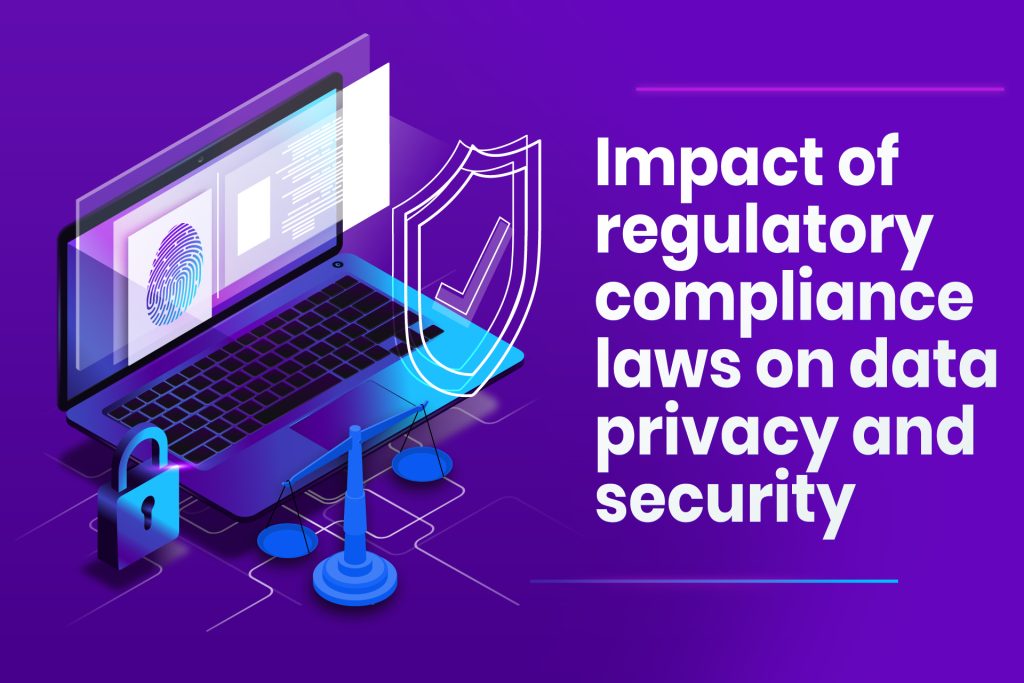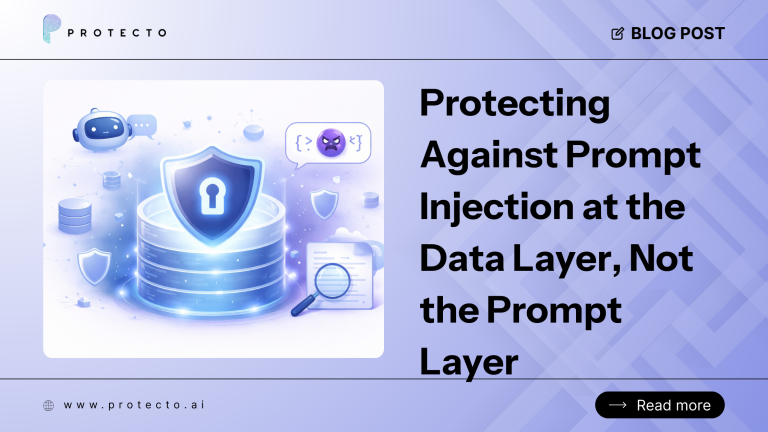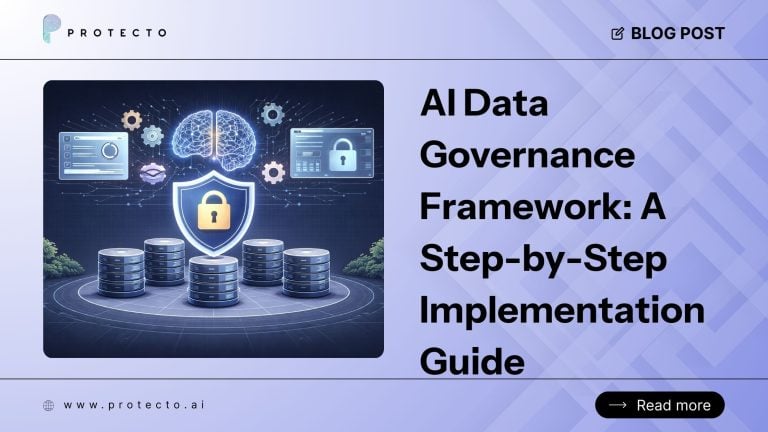In this day and age, it is an obligation for organizations handling customer data to learn about regulatory compliance. All over the world, there are laws governing how companies should handle customer data, and compliance is a binding requirement.
In this post, we discuss essential regulatory compliance laws, their impact on data privacy and security, why it is important to comply, and industry best practices you can count on to ensure compliance and avoid the pitfalls of non-compliance.
What is Regulatory Compliance?
Regulatory compliance refers to the adherence to all relevant laws, regulations, specifications, and guidelines for any organization. Governments and other regulatory bodies set these regulations to ensure companies operate safely and ethically.
Why is Regulatory Compliance Important?
According to Statista, as of the year 2020, ten percent of the population worldwide had personal data covered under modern privacy regulations. It was projected that a total of 65 percent of the global population will have personal data covered under privacy regulations by the year 2023. However, according to the website maintained by The United Nations Conference on Trade and Development (UNCTAD), the number of countries that have enacted privacy legislations has already exceeded that figure.
In today’s digital age, data privacy is of utmost importance. With the increasing amount of data being collected and stored, it is crucial to ensure that this data is protected from unauthorized access and misuse. Regulatory compliance plays a vital role in achieving this goal.
Compliance with data protection and privacy laws ensures that organizations are held accountable for the data they collect and process. Compliance requirements, such as oversight by independent supervisory or regulatory authorities, create a framework for organizations to follow and ensure that they are taking the necessary steps to protect their customers’ data.
By prioritizing regulatory compliance, organizations can build trust with their customers and demonstrate their commitment to data privacy.
Suggested Read: GDPR Data Mapping
Common Regulatory Compliance Laws Related to Data Privacy
Statistical data indicates that there are currently more than 120 countries worldwide that have adopted some form of international data privacy law. The scope of these laws varies significantly and more countries are slowly coming on board.
However, a closer look reveals that there are fewer than 20 countries around the world that have strict data privacy regulations which are strictly implemented as well. Apart from Europe and the US, other countries in this list include Canada, Brazil, Chile, India, and Japan.


Reference: IAPP privacy legislation tracker
While these laws are extensive, let us discuss some of the most important ones.
General Data Protection Regulation (GDPR)
The General Data Protection Regulation (GDPR) is a landmark regulation enumerated in EU law on data protection and privacy for individuals within the European Union (EU). It also covers the transfer of personal data outside of these areas. The GDPR was approved in 2016 and went into full effect two years later.
The primary aim of the GDPR is to provide individuals with greater control and rights over their personal data. It sets guidelines for collecting and processing personal information from individuals who live inside and outside the EU. Organizations that offer goods or services to people in the EU or that collect and analyze data for EU residents must comply with these regulations, regardless of location.
California Consumer Privacy Act (CCPA)
The California Consumer Privacy Act (CCPA) is a data privacy law passed by California on June 28, 2018. The law outlines new standards for data collection and consequences for businesses that fail to protect user data. It also provides rights that California consumers can exercise over their data.
The CCPA gives consumers more control over the personal information that businesses collect about them. Personal information includes any information that can identify or be linked with an individual or their household. Examples include names, social security numbers, email addresses, geolocation data, purchase records, internet browsing history, and fingerprints.
The CCPA regulations guide how to implement the law and secure new privacy rights for California consumers. Businesses must comply with these regulations to avoid legal penalties.
Personal Information Protection and Electronic Documents Act of Canada (PIPEDA)
The Personal Information Protection and Electronic Documents Act (PIPEDA) is a federal privacy law in Canada that applies to private-sector organizations that collect, use, or disclose personal information in the course of commercial activities. PIPEDA’s 10 fair information principles provide the ground rules for the collection, use, and disclosure of personal information, as well as for providing access to and correcting personal information.
The law requires organizations to obtain consent for the collection, use, and disclosure of personal information, and to safeguard the information using appropriate security measures. PIPEDA also gives individuals the right to access their personal information held by an organization and to request that it be corrected if necessary.
The Office of the Privacy Commissioner of Canada is responsible for enforcing PIPEDA and investigating complaints related to the law.
Brazilian General Data Protection Law (LGPD)
The Brazilian General Data Protection Law (LGPD) is a comprehensive data protection regulation that came into effect on September 18, 2020. The LGPD creates a legal framework for the use of personal data of individuals in Brazil, regardless of where the data processor is located. It aligns with the EU General Data Protection Regulation (GDPR) and includes provisions for data processing, storage, and transfer, as well as individual rights to access, correct, and delete personal data.
The LGPD applies to all organizations that process personal data in Brazil, including those located outside of Brazil if they process data of individuals in Brazil. The law also establishes the Brazilian National Data Protection Authority (ANPD) as the regulatory body responsible for enforcing the LGPD and imposing fines for non-compliance.
Apart from countries enforcing their own data privacy regulations, there are also data-regulations that are industry-specific. Let us take a look at some important ones.
Health Insurance Portability and Accountability Act (HIPAA)
The Health Insurance Portability and Accountability Act (HIPAA) is a federal law passed by the United States Congress in 1996. It set forth national standards to protect sensitive health information from being disclosed without the consent or knowledge of individuals.
HIPAA establishes requirements for using, disclosing, and safeguarding individually identifiable health information. This includes any information that identifies an individual or could be used to identify an individual.
The HIPAA Privacy Rule and federal civil rights laws protect Americans’ fundamental health rights. These regulations guide how to implement HIPAA requirements and secure new privacy rights for individuals.
Federal Information Security Management Act (FISMA)
The Federal Information Security Management Act (FISMA) is a federal law enacted in 2002 that recognizes the security of information as vital to the national and economic security of the United States. This was an integral part of the Electronic Government Act of 2002 and has since been updated and amended.
FISMA seeks to establish guidelines and cybersecurity standards for government tech infrastructure, protecting government information and operations.
Interesting Read: Top 5 Reasons How and Why Data Governance Programs Fail
Impact of Regulatory Compliance Laws on Data Privacy & Security
Regulatory compliance laws have a significant effect on data privacy and security. These laws are designed to protect consumers, employees, and businesses by establishing best practices that help keep data secure from breaches, improper use, destruction, leaks, and more.
Enhanced Customer Trust
One of the critical benefits of regulatory compliance is enhanced customer trust. When customers know that their personal information is being protected by strong security measures that comply with relevant regulations, they are more likely to trust a business with their data.
Protection Against Data Breaches
Another benefit is protection against data breaches. By following best practices established by regulatory compliance laws, businesses can reduce their risk of experiencing a data breach that could result in significant financial losses and damage to their reputation.
Improved Business Practices
Regulatory compliance also leads to improved business practices. By implementing strong security measures and regularly reviewing them for compliance with relevant regulations, businesses can ensure they follow best practices for protecting customer data.
Compliance with Government and Industry Regulations
Compliance with government and industry regulations can be challenging due to the constantly changing and evolving nature of these regulations. However, it can be a manageable burden with the right strategies in place.
Mitigation of Regulatory Compliance Risks
In addition to these benefits for businesses, regulatory compliance also helps mitigate risks associated with non-compliance. Failing to comply with relevant regulations can cause severe damage to company’s reputation and result in significant fines.
Regulatory compliance laws are essential in protecting data privacy and security. By following these regulations and implementing strong security measures that comply with them, businesses can enhance customer trust while also reducing their risk of experiencing a data breach or other security incident.
Consequences of Non-compliance with Data Privacy Regulations
Non-compliance with data privacy regulations can result in devastating consequences for organizations. These consequences can range from financial penalties to reputational damage and can significantly impact an organization’s operations.
Fines and Penalties
One of the most immediate consequences of non-compliance with data privacy regulations is the imposition of fines and penalties by regulatory bodies. These fines can be substantial and can damage an organization’s bottom line. As an example, under the General Data Protection Regulation (GDPR), organizations can face fines of up to 4% of their global annual revenue or €20 million (whichever is greater) for non-compliance.
In addition to fines imposed by regulatory bodies, organizations may also face penalties from other sources. Suppose a data breach occurs due to non-compliance with data privacy regulations. In that case, an organization may be required to compensate affected individuals or groups for any damages they have suffered.
Lawsuits
In addition to fines and penalties, organizations that fail to comply with data privacy regulations may also face lawsuits from affected individuals or groups. These lawsuits can be financially demanding and time-consuming to defend against and can result in significant damages being awarded against the organization.
Lawsuits related to non-compliance with data privacy regulations are becoming increasingly common as individuals become more aware of their rights. Organizations must take proactive steps to ensure compliance to mitigate this risk.
Reputational Damage
Another consequence of non-compliance with data privacy regulations is reputational damage. An organization failing to comply with these regulations can draw negative attention from the media and the public. This negative attention can lead to a loss of trust among customers, investors, and other stakeholders.
Reputational damage can be challenging to quantify, but it can have a significant impact on an organization’s operations.
Suggested Read: Instant Access, Zero Hassle: Our New Self-Service Trial Experience
How to Implement a Regulatory Compliance Plan in Organizations
Implementing a regulatory compliance plan in an organization involves several key steps. Here are some of the most critical steps that organizations can take to implement an effective regulatory compliance plan:
Conduct a Compliance Audit
The first step to regulatory compliance starts with conducting a comprehensive audit to determine a compliance baseline and identify any problem areas.
Appoint a Compliance Officer
A Corporate Compliance Officer or CCO oversees and manages compliance issues within the organization. Hiring a capable candidate for this role is an excellent safeguard.
Establish and Maintain Policies & Procedures
Establishing and maintaining clear policies and procedures is essential for ensuring regulatory compliance. These policies should be regularly reviewed and updated as necessary to remain effective.
Continual Improvement
Regulatory compliance is not a one-time event but an ongoing process requiring continual improvement. Organizations should regularly review their compliance practices and make changes as necessary to ensure that they remain compliant with relevant regulations.
Successfully implementing a regulatory compliance plan involves taking a proactive approach to identifying and addressing potential risks through effective policies, procedures, and practices. By following these steps, organizations can improve their regulatory compliance levels while reducing their risk of non-compliance.
Data Privacy Best Practices for Regulatory Compliance
Organizations can employ several best practices to ensure compliance with data privacy regulations. Here are some common best practices that organizations can implement:
A Holistic Approach
Organizations should consider data privacy a holistic risk management issue rather than something confined to technical experts. This means that data privacy should be regarded at all levels of the organization and integrated into all business processes.
Understand Your Data-Clearly
Organizations should understand their data, who has access to it, where it is stored, and to whom it is provided. This will help organizations identify potential risks and vulnerabilities and take appropriate steps to mitigate them.
Keep Your Promises
Organizations should ensure that their data privacy practices match their promises. This means that if an organization makes a promise about how it will handle personal data (e.g., through a privacy policy), it must follow through on that promise.
Ensure Evolving Practices
Data privacy regulations constantly evolve, so organizations must regularly review and update their practices to ensure continued compliance.
Assess Your Vendors
Organizations should carefully vet their vendors to ensure they comply with relevant data privacy regulations. This includes conducting due diligence on vendors’ data handling practices and making sure that all appropriate contractual provisions are in place.
In addition to these best practices, organizations can set up a governance, risk, and compliance (GRC) committee with cross-functional representation. This committee can help ensure privacy is visible within the organization and that departments are held accountable for compliance.
Protecto Can Help Ensure Regulatory Compliance Laws in Your Organization
With intelligent data posture management, Protecto can be a crucial resource for your organization when it comes to ensuring regulatory compliance. With Protecto, you can easily and quickly map your data, find points of vulnerabilities and potential risks, manage access, and create compliance reports to make this mammoth task manageable and intuitive. Protecto comes with out-of-the-box reports such as DPIA and ROPA to provide an audited report of user access, user activities, and justification on their access and usage of sensitive data.
Contact us to know what Protecto can do to help you accelerate your regulatory compliance efforts.



